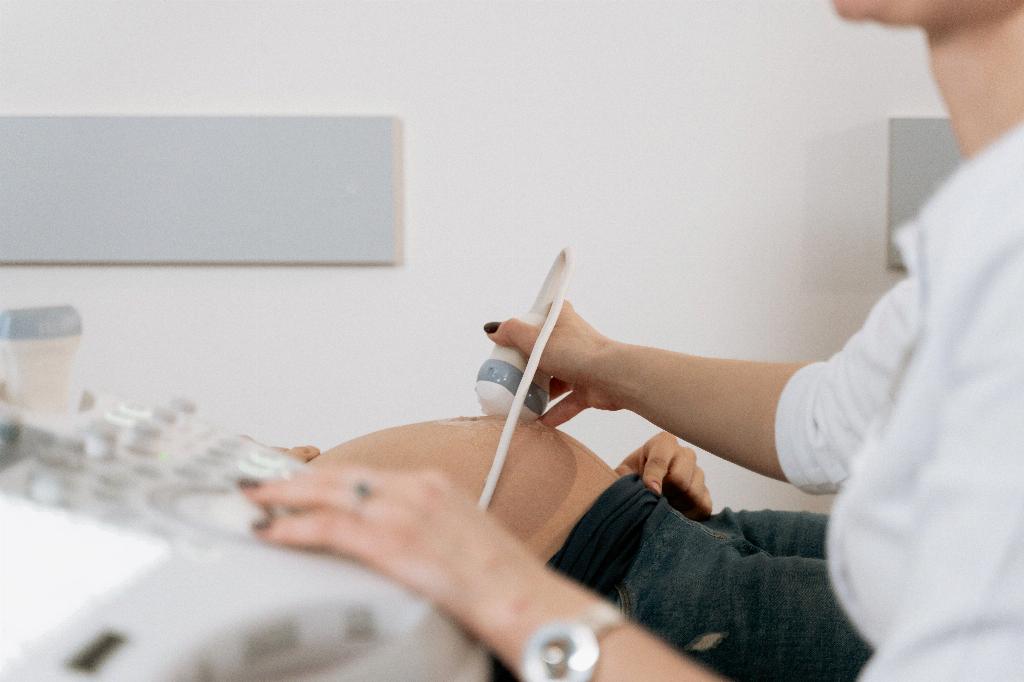As you navigate the unique journey of pregnancy, you may encounter unexpected symptoms that leave you wondering why your body is reacting in certain ways. One common issue that many pregnant individuals face is itchy skin, especially during the later stages of pregnancy. At 30 weeks pregnant, the itchiness you are experiencing could be attributed to a condition known as intrahepatic cholestasis of pregnancy, also referred to as cholestasis of pregnancy.
Exploring Intrahepatic Cholestasis of Pregnancy
Intrahepatic cholestasis of pregnancy is a liver disorder that tends to manifest in the third trimester of pregnancy. This condition disrupts the normal flow of bile, a digestive fluid produced by the liver, leading to a buildup of bile acids in the blood. As a result, individuals with intrahepatic cholestasis of pregnancy often experience intense itching, particularly on the hands and feet, though it can occur on other parts of the body as well.
Understanding the Link Between Cholestasis and Itching
The itching associated with intrahepatic cholestasis of pregnancy is a hallmark symptom of this condition. Interestingly, the itching is often more pronounced at night, which can significantly disrupt sleep and overall comfort. The exact mechanism behind why cholestasis leads to itching is not fully understood, but it is believed to be related to the elevated levels of bile acids in the bloodstream.
Recognizing the Significance of Hormonal Changes
Throughout pregnancy, your body undergoes a myriad of hormonal changes to support the growth and development of your baby. These hormonal shifts can also impact the functioning of your liver and gallbladder, potentially exacerbating conditions like intrahepatic cholestasis of pregnancy. The presence of elevated estrogen levels, in particular, is thought to play a role in the development of this liver disorder.
Assessing the Risk Factors for Cholestasis of Pregnancy
While the exact causes of intrahepatic cholestasis of pregnancy remain under investigation, there are several risk factors that may predispose individuals to developing this condition. These risk factors include a family history of cholestasis, a previous history of liver damage, multiple pregnancies, and certain genetic factors that could make you more susceptible to liver issues during pregnancy.
Examining the Symptoms Beyond Itching
Aside from the intense itching that characterizes cholestasis of pregnancy, individuals with this condition may experience other symptoms as well. These can include dark urine, light-colored stools, fatigue, loss of appetite, and jaundice, a yellow discoloration of the skin and eyes. If you are experiencing any of these additional symptoms along with itching, it is crucial to seek medical attention promptly.
Addressing the Risks to Your Baby
One of the primary concerns associated with intrahepatic cholestasis of pregnancy is the potential risks it poses to the baby. Elevated levels of bile acids in the mother’s bloodstream can cross the placenta and affect the baby’s health, increasing the risk of complications such as preterm birth, fetal distress, and in severe cases, stillbirth. Monitoring and managing this condition are essential for ensuring the safety and well-being of both you and your baby.
Seeking Medical Evaluation and Treatment
If you are experiencing persistent itching at 30 weeks pregnant or beyond, it is crucial to consult with your healthcare provider for a thorough evaluation. Your doctor can perform blood tests to assess liver function and bile acid levels, as well as monitor the well-being of your baby through ultrasounds and other diagnostic tests. Treatment for intrahepatic cholestasis of pregnancy may involve medications to alleviate itching and close monitoring of your pregnancy.
Embracing Self-Care Strategies
While medical intervention is essential in managing intrahepatic cholestasis of pregnancy, there are also self-care strategies you can incorporate to help alleviate itching and promote your overall well-being. Staying hydrated, wearing loose-fitting clothing, avoiding hot showers, and using fragrance-free skincare products can offer some relief from the discomfort of itchy skin.
Connecting with Support Networks
Coping with a condition like intrahepatic cholestasis of pregnancy can be emotionally challenging, especially as you navigate the uncertainties of pregnancy and concerns for your baby’s health. Seeking support from friends, family, support groups, or mental health professionals can provide you with the emotional support and reassurance you need during this time.
Looking Towards the Future
While dealing with itchy skin at 30 weeks pregnant due to intrahepatic cholestasis of pregnancy may feel overwhelming, it is essential to remember that you are not alone in this journey. With timely medical care, proper management of the condition, and a supportive network around you, you can take proactive steps to safeguard your health and the health of your baby as you progress through the remainder of your pregnancy.
Conclusion
Itchy skin at 30 weeks pregnant can be an uncomfortable and distressing symptom, particularly when attributed to intrahepatic cholestasis of pregnancy. By understanding the underlying causes, recognizing the associated risks, seeking medical evaluation and treatment, and implementing self-care strategies, you can navigate this challenging situation with confidence and resilience. Remember to prioritize your health and well-being, stay informed about your condition, and reach out for support when needed as you continue on your pregnancy journey.

